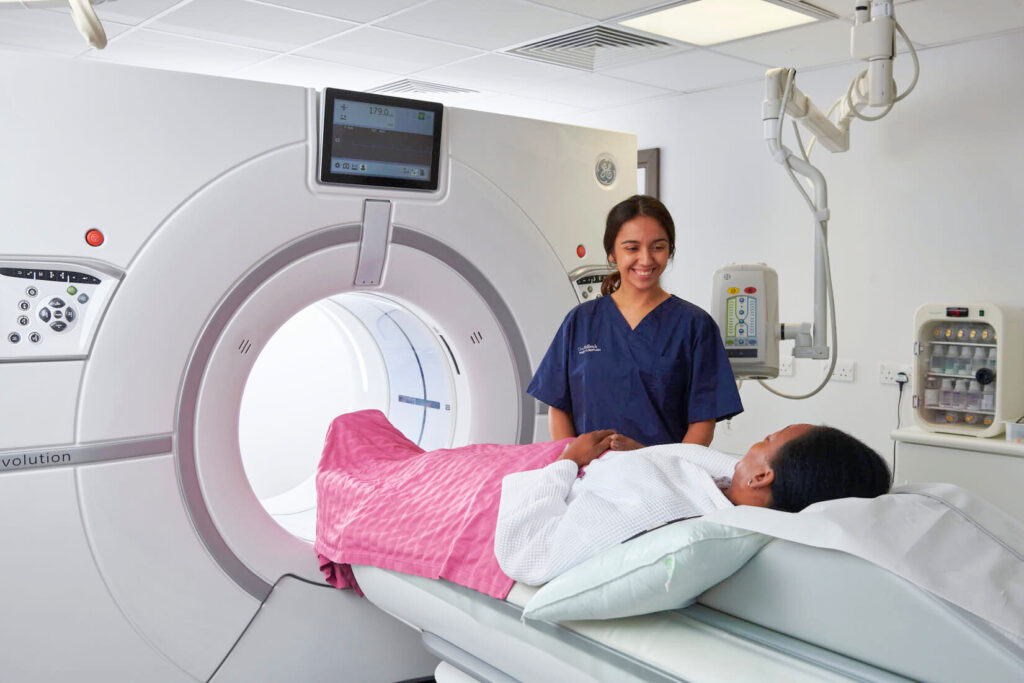Modern cardiac care includes a range of imaging tests designed to reveal different aspects of heart function and structure. One such test is the Cardiac MRI (Magnetic Resonance Imaging), which can help identify various conditions and guide treatment. If your cardiologist suggests a Cardiac MRI, you may have questions about what it is, why it’s being recommended, and how it differs from other tests.
1. What is a Cardiac MRI?
A Cardiac MRI uses magnetic fields and radio waves to create detailed images of the heart. Unlike X-rays or CT scans, it does not use ionising radiation. Instead, it relies on radio waves and magnetic fields to produce images that can show the heart’s chambers, valves, and blood vessels.
Key advantages of Cardiac MRI
- Creates high-resolution images of soft tissues
- Offers insights into both structure and function
- Can help assess blood flow and tissue health
2. How Does it Differ from Other Imaging Tests?
There are several ways a Cardiac MRI differs from tests such as an echocardiogram (ultrasound) or a cardiac CT scan:
- Image Clarity – MRIs often provide more detailed images of heart tissues, helping to identify subtle differences that may not appear on other scans.
- No Ionising Radiation – Unlike a CT scan, Cardiac MRI does not involve radiation, making it a suitable option for repeated assessments in some cases.
- Tissue Analysis – Cardiac MRI can detect issues like scarring or inflammation, which might be harder to see on an echocardiogram.
3. Why a Cardiologist May Recommend a Cardiac MRI
A cardiologist might suggest a Cardiac MRI for various reasons:
- Accurate Diagnosis – Cardiac MRI can confirm or clarify findings from other tests, ensuring a well-informed diagnosis.
- Detailed Treatment Planning – Comprehensive images of the heart’s structure and function can guide decisions about medication, surgery, or other interventions.
- Monitoring Progress – For those already undergoing treatment, periodic Cardiac MRI scans can help track changes in heart function over time.
- Investigating Complex Conditions – Certain heart conditions, such as cardiomyopathies or congenital abnormalities, often need the level of detail offered by MRI.
4. The Process: What to Expect
Understanding the process can ease any worries you might have:
- Preparation – You may be asked to avoid food or drink for a few hours before the scan. You’ll also need to remove metal objects like jewellery or belts.
- During the Scan – You will lie still inside an MRI machine while it captures images. The machine makes tapping or buzzing noises; you might be offered earplugs or headphones.
- Breathing Instructions – In some cases, you’ll be asked to hold your breath briefly to minimise movement and improve image clarity.
- Contrast Agents (if needed) – A contrast dye might be injected to enhance certain images, helping to highlight blood flow or detect tissue changes.
5. Points to Consider
- Time Commitment – A Cardiac MRI can take longer than some other scans—anywhere from 30 minutes to an hour or more.
- Comfort and Noise – If you feel anxious in enclosed spaces, share this concern beforehand. Some facilities offer open MRI options, or your doctor may discuss ways to help you remain calm.
- Safety – Cardiac MRI is widely considered safe. However, it may not be recommended if you have certain implanted devices that could be affected by magnetic fields.
Your Next Step: Partner with The Heart Doctors Clinic
If you’ve been advised to have a Cardiac MRI or want more information about how this scan fits into your overall care, our team at The Heart Doctors Clinic is here to help. We offer guidance on imaging options, discuss any concerns you may have, and create a treatment plan tailored to your needs.
Ready to learn more or schedule a consultation?
- Call us to discuss your appointment options.
- Visit our website to find out about our full range of services.
- Stay proactive in looking after your heart -understanding your condition is a valuable step towards better health.
A Cardiac MRI can be an important part of your diagnostic journey and treatment planning. By knowing what to expect, you can approach your scan with more confidence and peace of mind.








